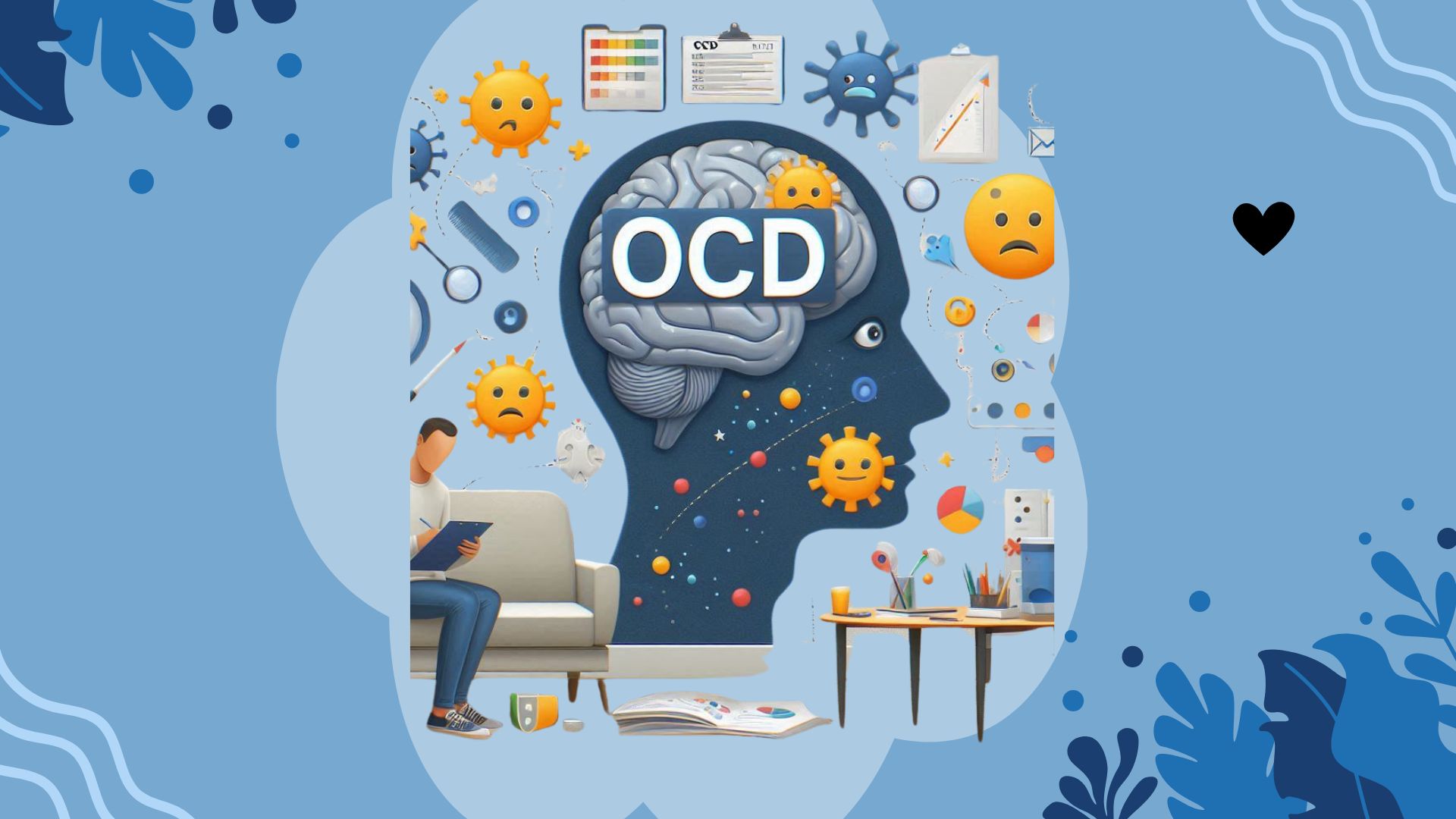What Is OCD?
Obsessive-Compulsive Disorder (OCD) is a mental health condition characterized by obsessions (intrusive, distressing thoughts, images, or urges) and compulsions (repetitive behaviors or mental acts performed to reduce anxiety). These thoughts and behaviors can significantly impact daily life, relationships, and work. Many individuals with OCD spend hours engaging in compulsions, which can interfere with productivity, social interactions, and overall well-being.
Common OCD Themes
OCD manifests in various ways, often centered around common themes such as:
- Contamination fears – excessive hand washing, avoiding certain places or objects.
- Checking behaviors – repeatedly ensuring doors are locked or appliances are off.
- Symmetry and order – arranging objects in a specific way to feel “just right.”
- Intrusive thoughts – unwanted, distressing thoughts about harm, morality, or taboo subjects.
- Harm OCD – fears of causing harm to oneself or others, leading to excessive avoidance or reassurance-seeking.
- Relationship OCD (ROCD) – obsessive doubts about romantic relationships and partners.
- Existential OCD – obsessive questioning of reality, life’s purpose, or philosophical dilemmas.
Although many people recognize that their obsessions and compulsions are irrational, they often feel powerless to stop them. For example, a person with checking compulsions may spend excessive time ensuring that the stove is off, leading to chronic lateness and significant stress.
Practical Strategies for Managing OCD
Cognitive Behavioral Therapy (CBT) and ERP
The most effective treatment for OCD is Cognitive Behavioral Therapy (CBT), particularly Exposure and Response Prevention (ERP). ERP gradually exposes individuals to their fears while preventing the associated compulsive response. Over time, this weakens the connection between obsessions and compulsions, helping individuals manage their anxiety more effectively.
For example, someone with contamination OCD may be asked to touch a doorknob and delay washing their hands. Initially, this will create anxiety, but through repeated exposure, their anxiety will decrease, breaking the cycle of obsessive fear and compulsive behavior. A structured ERP plan, guided by a trained therapist, is essential to ensure gradual and effective exposure.
Medication and Additional Treatments
In addition to therapy, Selective Serotonin Reuptake Inhibitors (SSRIs), such as fluoxetine (Prozac) and sertraline (Zoloft), can help regulate serotonin levels and reduce OCD symptoms. However, medication alone is not a cure—it is most effective when combined with therapy. In some cases, alternative medications, such as antipsychotics, may be prescribed if SSRIs alone are not effective.
Other strategies that can help individuals manage their symptoms include:
- Mindfulness and relaxation techniques – to ground oneself in the present and manage anxiety.
- Structured routines – to prevent compulsions from taking over daily life.
- Reducing caffeine and alcohol intake – as these can exacerbate anxiety.
- Regular exercise and journaling – to improve mood and track triggers.
Also Read: Navigating Anticipatory Anxiety: Understanding the Fear of What’s Next
Breaking the Myths: What People Get Wrong About OCD
Myth 1: OCD Is Just About Cleanliness or Perfectionism
A common misconception is that OCD revolves solely around cleanliness or order. While some individuals do experience contamination fears, many struggle with intrusive thoughts, compulsive checking, and mental rituals unrelated to hygiene.
Myth 2: OCD Is the Same as General Anxiety or Neatness
OCD is often mistaken for general anxiety or a preference for tidiness. However, unlike someone who enjoys an organized space, a person with OCD experiences intense distress and anxiety when their compulsions are not performed. These behaviors are not about preference but about alleviating overwhelming fear.
Myth 3: People with OCD Enjoy Their Rituals
Compulsions are not pleasurable or voluntary; they are driven by anxiety and distress. Many individuals with OCD feel frustrated by their compulsions and wish they could stop, but without proper treatment, breaking the cycle is extremely difficult.
Myth 4: OCD Can Be Cured by “Just Stopping the Behavior”
OCD is not a habit that can be broken by willpower alone. Attempting to resist compulsions without proper techniques often leads to increased anxiety. Professional treatment, such as ERP and medication, is essential for effective management.
The Importance of Early Intervention and Long-Term Management
Early diagnosis and treatment significantly improve outcomes for individuals with OCD. Without intervention, symptoms can become more severe, making it harder to function in daily life. Long-term management strategies, such as ongoing therapy, support groups, and self-care practices, help prevent relapses and allow individuals to lead fulfilling lives.
Success stories of individuals who have learned to manage their OCD demonstrate that recovery is possible. Many regain control through ERP therapy, medication, and lifestyle adjustments, proving that with commitment, support, and professional guidance, OCD does not have to define one’s future.
In Short
OCD is a complex but manageable condition. By understanding its symptoms, challenging misconceptions, and seeking appropriate treatment, individuals with OCD can regain control over their lives. Whether through ERP therapy, medication, or self-help strategies, it is possible to break free from the cycle of obsessions and compulsions and lead a fulfilling life.
If you or someone you know is struggling with OCD, seeking professional help is the first step toward recovery. Consider reaching out to a licensed therapist trained in ERP, joining a support group, or exploring resources from organizations like the International OCD Foundation (IOCDF). Awareness, education, and proper treatment can make a significant difference.

